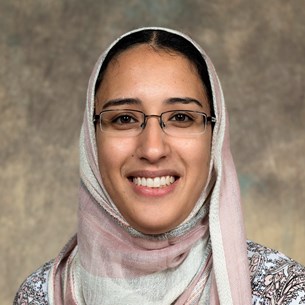“What was the biggest challenge you faced as a first-year faculty?” A trainee asked me this question recently and I hesitated for a moment, wondering if I should give a generic answer regarding work-life balance, the power of saying no, finding a mentor and sponsor, etc. But for me, none of those were the hardest. So I replied honestly: “Finding a community.” My trainee nodded and our conversation shifted to mutual challenges of what it means to move to a new city and institution for a job or training position, and the struggle to set down roots and forge meaningful connections.
I relocated to a new country a decade ago, settling into a new culture and a new way of practicing medicine without any family or community ties. It took weeks for me to establish a social security number due to an error that initially occurred on my visa stamp on entry at the U.S. border. I had to learn new brand names for medications, different from names I prescribed in Arabic back home. How I marveled at the many new resources at my fingertips, only to be confronted by the stark disparities in access to health care in a system requiring much reform. But all of these obstacles could be managed. At every transition point in my career, with all its new challenges as a resident, fellow, and attending, the most difficult personally has always been the quest to find a community, to fit in, and to create a semblance of a home.
I was still in my country of origin when I lost my mom more than 10 years ago. I remember the outpouring of support in a community I had lived in for many years and among close friendships I had cultivated throughout medical school. Amidst the haze of grief and loss in the days that followed, there was always a friend reaching out with a supportive text or a phone call. There was the familiarity of being home, the small comforts of being surrounded by people who knew my mom and loved her and understood the gravity of my loss. There was the reassurance of knowing that someone was always close by to grab a cup of coffee, to go for a walk, and to simply sit down with me in comfortable silence.
When my father passed away last year, a few months into a new job, living alone in a new city, amidst an ongoing pandemic, I remember most of all the isolation that followed. The sinking realization that he passed away overseas and that I couldn’t travel back home due to paperwork issues. I spent the week following his death in my apartment, completely alone. I thought a lot about what we give up in a career devoted to medicine when we move around from one country to another, and from one city to another, searching for training positions and job opportunities. I thought about the situational adult friendships built on a shared work environment that sadly don’t endure the time or distance that follows. I keenly felt the deep ache of not having a community to fall back on in a time of sadness and loss, and the awkward silence from many who didn’t know me well so didn’t want to “overstep.”
I also remember the small kindnesses that shaped the weeks that followed. A colleague, someone I barely knew at the time, took me out for a walk along the esplanade after seeing how much I was struggling with the isolation and grief. That walk and conversation turned into a casual acquaintance into a close friendship with weekly “therapy walks” that we now schedule faithfully. Another colleague took me out for dinner and over time became a collaborator on some mutually meaningful work projects that bring me joy. People sent me kind messages on social media; they shared their own stories of loss and grief and offered support and solidarity. Strangers often surprise us by showing an immense amount of unexpected kindness during difficult times.
A year later, I am still working on setting roots in this new city and continuing to invest in relationships to build a community around me. I think often about the hidden grief and isolation many of us may carry beneath our professional demeanors and polite small talk. I think of the importance of a kind word, an authentic conversation, inclusion into a support network and looking out for one another. As I have seen for myself, and as we have all seen over the past few years, “We don't heal in isolation, but in community.”


Comments
Tara Rajendran, MBBS, MFA
Feb, 16 2023 12:21 PM
This is an important topic! Thank you for sharing this with us, Dr. Inas! Sending love and light your way!
Muhammad Mohsin Fareed, MBBS
Mar, 05 2023 10:52 AM
Wonderful topic on situation encountered by lot of IMGs settling into a new society, well crafted and reflective of real world scenario!!
Sitna Ali Mwanzi, FRCP
Mar, 24 2023 1:10 AM
Thanks Dr Inas for highlighting the need for community in and out of work. We are clinicians are still humans who need support and comfort as we go through our own challenges. May Allah grant your parents the highest level of Jannah and grant you comfort during this time.